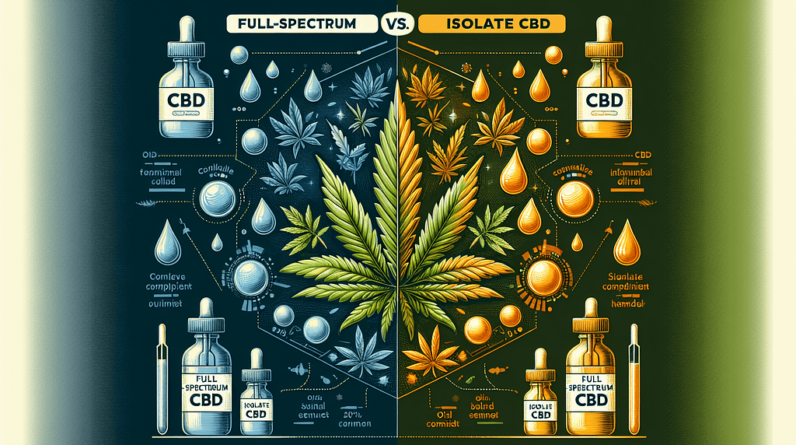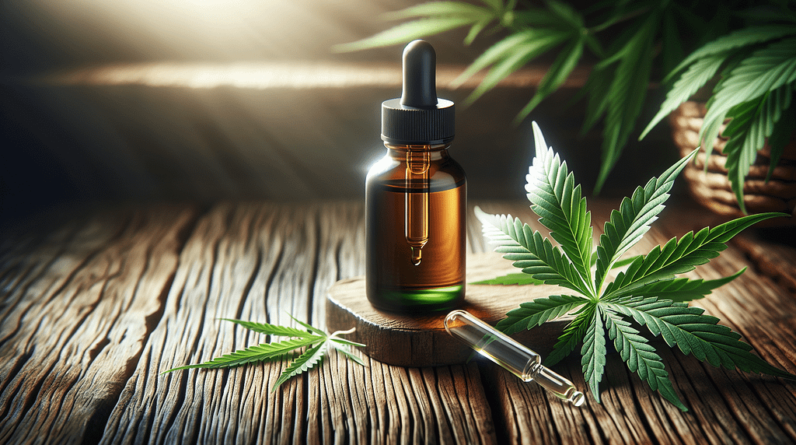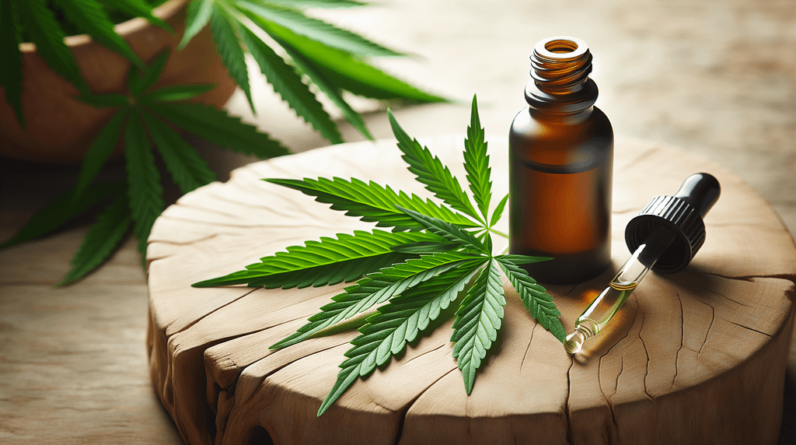As an Amazon Associate I earn from qualifying purchases.
Learn how to find the right CBD dosage for your needs. Understand the factors affecting dosage, forms of CBD, and tips for safe and effective use. Start your journey now!
Beginner’s Guide to CBD Dosage
Welcome to this comprehensive guide on CBD dosage for beginners! If you’re new to CBD, you probably have a ton of questions about how much to take, when to take it, and what to expect. Don’t worry; you’re not alone. This guide aims to help you navigate the complex world of CBD dosages so you can find the right amount that works for you.
Understanding CBD: What Is It?
Cannabidiol, or CBD, is a naturally occurring compound found in the cannabis plant. Unlike its cousin, THC (tetrahydrocannabinol), CBD is non-psychoactive, meaning it won’t get you “high.” CBD is commonly used for its potential health benefits, which range from pain relief to reduced anxiety and improved sleep. With the increasing popularity of CBD products, understanding how much to take is crucial to maximize its benefits.
Why Correct Dosage Matters
Taking the right dosage of CBD is essential for ensuring that you experience the desired effects without any adverse reactions. The dosage can vary widely based on factors such as body weight, metabolism, the condition you’re treating, and the concentration of CBD in the product you’re using. Incorrect dosages can either render the CBD ineffective or cause unwanted side effects. By starting with the right dosage, you increase your chances of achieving optimal results.
Factors Affecting CBD Dosage
Body Weight
Your body weight can significantly influence the amount of CBD you need. Generally, heavier individuals require higher dosages of CBD to experience the same effects as lighter individuals. This is due to the fact that CBD is fat-soluble, so it gets stored in your body’s fat cells.
Metabolism
Just like body weight, your metabolism plays a crucial role in determining the right dosage. People with faster metabolisms will process CBD more quickly, which may result in needing a higher dose to maintain its effectiveness. Conversely, individuals with slower metabolisms may experience prolonged effects with a smaller amount of CBD.
Desired Effects
Whether you’re looking to relieve anxiety, manage chronic pain, or improve sleep, your desired outcome will impact the dosage you should take. For example, a smaller dose might be sufficient for mild anxiety, while chronic pain may require a higher dose.
Tolerance Level
If you’ve used CBD or other cannabinoids before, you might already have some tolerance built up. In this case, you might need a higher dosage compared to someone who is completely new to CBD.
Product Concentration
CBD products come in various concentrations, usually indicated in milligrams on the label. A higher concentration product will deliver more CBD per dose compared to a lower concentration product. Thus, understanding the concentration helps you accurately gauge your dosage.
https://medium.com/media/8c4cc781355998663c7fce29662816b0/href
How to Calculate Your CBD Dosage
Start Low and Go Slow
One of the most commonly recommended strategies for finding the right CBD dosage is to “start low and go slow.” Begin with a low dose, observe how your body reacts, and gradually increase the amount until you reach the desired effect.
Basic Dosage Formula
A general guideline for starting your CBD dosage is to take 1–6 mg of CBD for every 10 pounds of body weight. So, if you weigh 150 pounds, you might start with 15–25 mg of CBD. Based on how you respond, you can adjust the dosage accordingly.
Consult a Healthcare Provider
Before making any significant changes to your CBD dosage, especially if you are on other medications or have underlying health conditions, consult your healthcare provider. They can offer valuable insights tailored to your specific health needs.
Different Forms of CBD and Their Dosage
CBD Oil and Tinctures
CBD oil and tinctures are among the most popular forms of CBD. They offer flexibility in dosing because you can easily adjust the amount using a dropper. To calculate the correct dosage, you’ll need to know the concentration of CBD in the oil. For example, if your CBD oil contains 1000 mg in a 30 ml bottle, each dropper (typically 1 ml) will contain approximately 33.3 mg of CBD.
CBD Capsules and Edibles
Capsules and edibles are convenient but come with predefined doses, which might limit your ability to fine-tune your dosage. Always read the packaging to understand how much CBD is in each serving.
CBD Topicals
Topicals like creams and balms are applied directly to the skin and are often used for localized pain relief. Since they don’t enter the bloodstream, the dosage may differ from other forms of CBD.
CBD Vapes
Vaping CBD offers quick effects as the compound is absorbed directly into your bloodstream through the lungs. However, it also makes dosage control more challenging, as different vapes can produce varying amounts of vapor.
How to Adjust Your Dosage
Tracking Your Progress
Once you start taking CBD, keep a journal to track your dosage and its effects. Note down the amount, time of day, and any observed effects. This will help you understand how CBD is working for you and provide a basis for adjusting your dosage.
Gradual Increase
When adjusting your dosage, make changes gradually. Increase your dose by small increments, and give your body time to respond before making further adjustments.
Observe Side Effects
If you notice any adverse side effects like dizziness, fatigue, or digestive issues, you may need to lower your dosage. Side effects are usually mild but can serve as indicators that you’re taking too much CBD.
When to Take Your CBD
Time of Day
The best time to take CBD largely depends on your goals. If you’re using CBD to improve sleep, consider taking it before bed. For anxiety or stress relief, you might find it helpful to take smaller doses throughout the day.
Consistency is Key
Taking your CBD at the same time every day can help maintain a consistent level of CBD in your system, which may enhance its effectiveness over time.
Special Considerations
Pregnancy and Breastfeeding
If you are pregnant or breastfeeding, consult your healthcare provider before using CBD. Limited research exists on the effect of CBD during pregnancy and breastfeeding, so professional medical advice is crucial.
Existing Medical Conditions
Certain medical conditions and medications can interact with CBD. For instance, it can potentially interact with blood thinners and certain anti-seizure medications. Always consult your healthcare provider for guidance specific to your health conditions.
Pets
Yes, even pets can benefit from CBD! However, dosages for pets are different from those for humans. Consult your veterinarian for appropriate dosages tailored to your pet’s weight, breed, and condition.
Common Questions About CBD Dosage
Can I Overdose on CBD?
CBD is generally considered safe and non-toxic, even in high doses. However, taking too much can cause side effects like dizziness, sedation, or digestive issues. While you can’t fatally overdose on CBD, it’s always best to stick within recommended guidelines.
How Long Does It Take to Feel the Effects?
The time it takes to feel the effects of CBD can vary based on the form of CBD you’re using. For example, vaping CBD might produce effects almost immediately, while edibles could take 30–60 minutes as they pass through your digestive system.
How Long Do the Effects Last?
The duration of CBD’s effects also depends on the form of CBD. Typically, the effects can last anywhere from 2 to 6 hours. Topicals might offer longer-lasting localized relief, whereas the effects of vapes might subdue more quickly.
Choosing the Right CBD Product
Look for Quality
Always choose high-quality CBD products that have been third-party tested for potency and purity. This eliminates the risk of contaminants and ensures you’re getting what you pay for.
Full-Spectrum vs. Isolate
There are different types of CBD products, including full-spectrum and isolate. Full-spectrum products contain other cannabinoids and terpenes, which can contribute to the “entourage effect,” potentially enhancing the benefits. Isolate, on the other hand, is pure CBD without other compounds.
Certifications and Reviews
Look for products that come with certifications and positive reviews. Third-party lab results (often referred to as a COA, or Certificate of Analysis) are particularly crucial for verifying the CBD content and the absence of harmful contaminants.
CBD for Specific Conditions: Dosage Recommendations
Anxiety
For anxiety, users typically start with a dosage of around 10–20 mg per day and gradually increase until they achieve the desired effect. Some find relief with as little as 5 mg, while others may require doses upwards of 50 mg.
Chronic Pain
Pain management might require higher doses, often in the range of 20–50 mg per day. Start at the lower end and gradually increase as needed for relief.
Sleep Disorders
For sleep, a dosage of 20–25 mg taken an hour before bedtime is commonly recommended. However, some people might need higher doses, especially if they have severe sleep disorders.
Epilepsy
In cases of severe conditions like epilepsy, dosages can be significantly higher, often in consultation with a healthcare provider. For instance, the FDA-approved medication Epidiolex for epilepsy contains high doses of CBD.
DIY CBD Dosage Calculator
Creating your own CBD dosage calculator can be an excellent way to tailor your intake. Here’s a simple method:
Determine your body weight in pounds.Decide on your desired dosage per 10 pounds (1–6 mg).Multiply your body weight by the desired dosage.
For example, if you weigh 150 lbs and choose 3 mg per 10 pounds, your target dosage would be 45 mg (150 lbs / 10 = 15, and 15 * 3 mg = 45 mg).
Final Tips for CBD Dosage
Patience is Essential
CBD doesn’t work instantly for everyone, and finding the right dose may take some time. Be patient and give yourself at least a week on each dosage level before making adjustments.
Listen to Your Body
Your body knows best. Pay close attention to how you feel each day, and use that feedback to determine whether your current dosage is effective or needs adjusting.
Stay Informed
The world of CBD is ever-evolving, with new research and products continually emerging. Stay informed and updated to make the best choices for your health.
Conclusion
Navigating the world of CBD can seem overwhelming, but finding the right dosage is a critical step in maximizing its benefits for your health and well-being. By starting low and going slow, consulting healthcare professionals, and keeping track of your progress, you can discover the optimal dosage for your needs. Your journey to better health with CBD is a personal one, filled with learning and adjustments along the way.
If you found this guide helpful, please consider clapping for the article, leaving a comment, and subscribing to my Medium newsletter for more updates and tips on CBD and wellness. Your support and feedback are invaluable!
Disclosure: This story incorporates AI assistance for content creation.
Amazon and the Amazon logo are trademarks of Amazon.com, Inc, or its affiliates.






